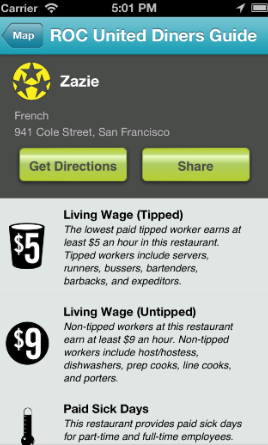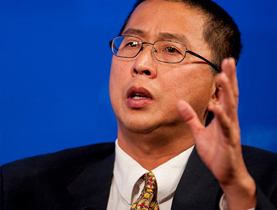Kids, Allergies and a Possible Downside to Squeaky Clean Dishes
New research suggests that using a dishwasher may increase the likelihood that your child will develop allergies. The study, which involved 1,029 children (ages 7 or 8), found that children whose parents said they mostly washed the family dishes by hand were significantly less likely to develop eczema, and somewhat less likely to develop allergic asthma and hay fever.
The findings are the latest to support the “hygiene hypothesis,” a proposition that?suggests that people in developed countries?have become overly clean due to increased usage of hand sanitizers and detergents and therefore less likely to be exposed to bacteria. A child’s lack of contact with microorganisms may reduce their immune system’s ability to recognize a microbial friend from a foe causing it to misfire and overreact in a way that leads to allergies, eczema and asthma.
Researchers say the new study may be onto something, although it’s still too soon to tell since there are other factors that may explain the outcome. Researchers took economic status into account while conducting the study since it could be that people who don’t have dishwashers are alike in other ways, hence reducing their tendency to get allergies. Interestingly, they found that certain lifestyle characteristics such as eating fermented foods regularly, and buying food items straight from the farm, seemed to strengthen the “protective” effect in families without dishwashers.
App Rates How Restaurants Treat Workers
 An updated version of an app?designed to help diners investigate the welfare of food workers at various restaurants is now
An updated version of an app?designed to help diners investigate the welfare of food workers at various restaurants is now
available. Think of it as a kind of Yelp for labor rights. The ROC (Restaurant Opportunities Center) United Diners’ Guide app allows diners to look into the policies of restaurants throughout the U.S. When?a user enters their location, the app pulls up local restaurants and provides information, such as whether they pay their staffs a living wage or offer basic benefits, like paid sick days. When the user swipes left, the app evaluates the top 100 chain restaurants in the U.S. so you can see how they stack up.
While the app was introduced a couple of years ago, the new updated version offers a twist: crowdsourcing. ROC officials hope this addition will help to expand the list, which currently offers detailed information for about 150 restaurants.
If your restaurant of choice isn’t on the list, the app encourages you to talk to a manager about the establishment’s policies and share with ROC information about its wages and practices. The information submitted goes to ROC’s staff, who verify the details before adding it to the list of restaurants. Every time diners reach out directly to a restaurant manager, they are demonstrating that these issues are important.
Denmark: Pioneer of Wind Power
When it comes to eliminating our dependence on fossil fuels, we should be taking notes from Denmark.?Denmark has long been a pioneer of wind power, and has recently set the new world record for wind production?by getting?39.1 percent of its overall electricity from wind in 2014.
Climate Change Scientist Found to be Paid Out By Oil Industry
Wei-Hock Soon of the Harvard-Smithsonian Center for Astrophysics has been one?of the most influential scientists involved with the blocking of climate change legislation. For years, Soon has claimed that  variations in the sun?s energy can largely explain recent global warming, denying that human activity has contributed to climate change. He has often appeared on conservative news programs, testified before Congress, and starred at conferences of people who deny the risks of global warming. But recently, through the investigative work of Greenpeace, documents have been released showing that Dr. Soon?s work has been tied to large amounts of funding he received from corporate interests.
variations in the sun?s energy can largely explain recent global warming, denying that human activity has contributed to climate change. He has often appeared on conservative news programs, testified before Congress, and starred at conferences of people who deny the risks of global warming. But recently, through the investigative work of Greenpeace, documents have been released showing that Dr. Soon?s work has been tied to large amounts of funding he received from corporate interests.
Over the last decade, Soon has received more than $1.2 million dollars from the fossil-fuel industry, while failing to disclose the conflict of interest in most of his scientific papers. At least 11 papers he has published since 2008 omitted such a disclosure, and in at least eight of those cases, he appears to have violated ethical guidelines of the journals that published his work.
While this information comes as no real surprise, it does remind us that we must always question the information that is provided to us, whether it be scientific study or news article.

Comments are closed.